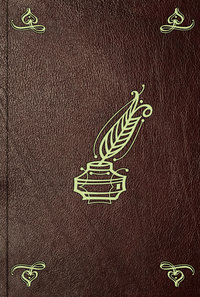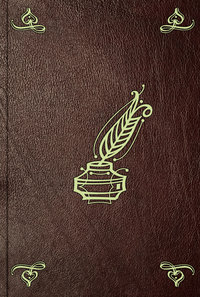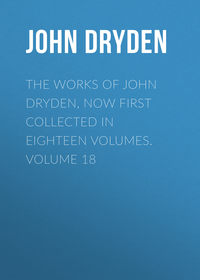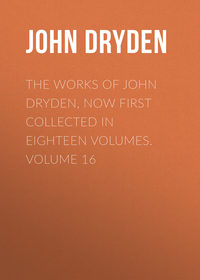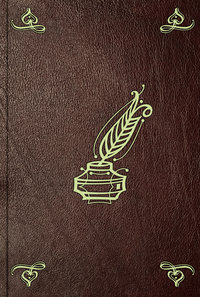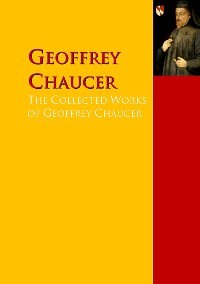The Works of John Dryden, now first collected in eighteen volumes. Volume 12
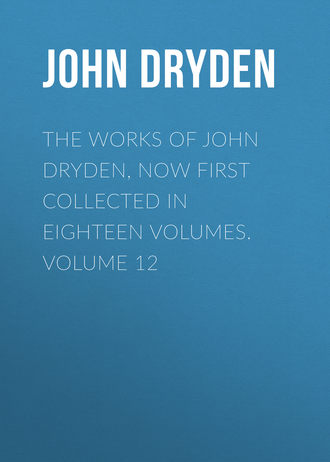 полная версия
полная версияThe Works of John Dryden, now first collected in eighteen volumes. Volume 12
Настройки чтения
Размер шрифта
Высота строк
Поля
THE NONNES PREESTES TALE
A poure widewe, somdel stoupen in age,Was whilom dwelling in a narwe cotageBeside a grove stonding in a dale.This widewe, which I tell you of my tale,Sin thilke day that she was last a wifIn patience led a ful simple lif,For litel was hire catel and hire rente;By husbondry of swiche as God hire senteShe found hireself and eke hire doughtren two.Three large sowes had she, and no mo,Three kine, and eke a sheep that highte Malle;Ful sooty was hire boure and eke hire halle,In which she ete many a slender mele;Of poinant sauce ne knew she never a dele:No deintee morsel passed thurgh hire throte;Hire diete was accordant to hire cote:Repletion ne made hire never sike;Attempre diete was all hire physike,And exercise, and hertes suffisance;The goute let hire nothing for to dance,Ne apoplexie shente not hire hed:No win ne dranke she nyther white ne red:Hire bord was served most with white and black,Milk and broun bred, in which she fond no lack,Seinde bacon, and somtime an eye or twey,For she was as it were a manner dey.A yerd she had enclosed all aboutWith stickes, and a drie diche without,In which she had a cok highte Chaunteclere,In all the land of crowing n'as his pere:His vois was merier than the mery orgonOn masse daies that in the chirches gon:Wel sikerer was his crowing in his logeThan is a clok or any abbey orloge:By nature he knewe eche ascentiounOf the equinoctial in thilke toun,For whan degrees fiftene were ascendedThan crew he that it might not ben amended.His combe was redder than the fin corall,Enbattelled as it were a castel wall;His bill was black, and as the jet it shone,Like asure were his legges and his tone,His nailes whiter than the lily flour,And like the burned gold was his colour.This gentil cok had in his governanceSeven hennes for to don all his plesance,Which were his susters and his paramoures,And wonder like to him as of coloures,Of which the fairest, hewed in the throte,Was cleped faire Damoselle Pertelote.Curteis she was, descrete and debonaire,And compenable, and bare hireself so faire,Sithen the day that she was sevennight old,That trewelich she hath the herte in holdOf Chaunteclere, loken in every lith;He loved hire so, that wel was him therwith:But swiche a joye it was to here hem sing,Whan that the brighte sonne gan to spring,In swete accord: my lefe is fare in lond.For thilke time, as I have understond,Bestes and briddes couden speke and sing.And so befell that in a daweningAs Chaunteclere among his wives alleSate on his perche that was in the halle,And next him sate his faire Pertelote,This Chaunteclere gan gronnen in his throteAs man that in his dreme is dretched sore;And whan that Pertelote thus herd him roreShe was agast, and saide, herte dere,What aileth you to grone in this manner?Ye ben a veray sleper, fy for shame.And he answered and sayde thus; Madame,I pray you that ye take it not agrefe;By God me mette I was in swiche mischiefeRight now, that yet min herte is sore afright.Now God (quod he) my sweven recche aright,And kepe my body out of foule prisoun.My mette how that I romed up and dounWithin our yerde, wher as I saw a besteWas like an hound, and wold han made aresteUpon my body, and han had me ded:His colour was betwix yelwe and red,And tipped was his tail and both his eresWith black, unlike the remenant of his heres:His snout was smal, with glowing eyen twey;Yet for his loke almost for fere I dey:This caused me my groning douteles.Avoy, quod she; fy on you herteles.Alas! quod she, for by that God aboveNow han ye lost myn herte and all my love,I cannot love a coward by my faith;For certes, what so any woman saith,We al desiren, if it mighte be,To have an husbond hardy, wise, and free,And secree, and non niggard ne no fool,Ne him that is agast of every tool,Ne non avantour by that God above.How dorsten ye for shame say to your loveThat any thing might maken you aferde?Han ye no mannes herte and han a berde?Alas! and con ye ben agast of swevenis?Nothing but vanitee, God wote, in sweven is.Swevenes engendren of repletions,And oft of fume, and of complexions,Whan humours ben to habundant in a wight.Certes this dreme which ye han met to-nightCometh of the gret superfluiteeOf youre rede colera parde,Which causeth folk to dreden in her dremesOf arwes, and of fire with rede lemes,Of rede bestes that they wol hem bite,Of conteke, and of waspes gret and lite,Right as the humour of melancolieCauseth ful many a man in slepe to crieFor fere of bolles and of beres blake,Or elles that blake devils wol hem take.Of other humours coud I telle also,That werken many a man in slepe moch wo;But I wol passe as lightly as I can.Lo Caton, which that was so wise a man,Said he not thus? Ne do no force of dremes.Now, Sire, quod she, whan we flee fro the bemesFor Goddes love as take som laxatif:Up peril of my soule, and of my lifI counseil you the best, I wol not lie,That both of coler and of melancolieYe purge you; and for ye shul not tarie,Though in this toun be non apotecarie,I shal myself two herbes techen youThat shal be for your hele and for your prow,And in our yerde the herbes shall I finde,The which han of hir propretee by kindeTo purgen you benethe and eke above.Sire, forgete not this for Goddes love;Ye ben ful colerike of complexion;Ware that the sonne in his ascentionNe finde you not replete of humours hote;And if it do, I dare wel lay a groteThat ye shul han a fever tertiane,Or elles an ague, that may be your bane.A day or two ye shul han digestivesOf wormes or ye take your laxatives,Of laureole, centaurie, and fumetere,Or elles of ellebor that groweth there,Of catapuce or of gaitre beries,Or herbe ive growing in our yerd that mery is;Picke hem right as they grow, and ete hem in.Beth mery, husbond; for your fader kinDredeth no dreme: I can say you no more.Madame, quod he, grand mercy of your lore;But natheles as touching Dan Caton,That hath of wisdome swiche a gret renoun,Though that he bade no dremes for to drede,By God, men moun in olde bookes redeOf many a man more of auctoriteeThan ever Caton was, so mote I the,That all the revers sayn of his sentence,And han wel founden by experience,That dremes ben significationsAs wel of joye as tribulationsThat folk enduren in this lif present:Ther nedeth make of this non argument;The veray preve sheweth it indede.On of the gretest auctours that men redeSaith thus, that whilom twey felawes wenteOn pilgrimage in a ful good entente,And happed so they came into a tounWher ther was swiche a congregatiounOf peple, and eke so streit of herbergage,That they ne founde as moche as a cotageIn which they bothe might ylogged be,Wherfore they musten of necessitee;As for that night, departen compagnie;And eche of hem goth to his hostelrie,And toke his logging as it wolde falle.That on of hem was logged in a stalle,Fer in a yard, with oxen of the plough,That other man was logged wel ynough,As was his aventure or his fortune,That us governeth all, as in commune.And so befell that long or it were dayThis man met in his bed, ther as he lay,How that his felaw gan upon him calle,And said, Alas! for in an oxen stalleThis night shal I be mordred ther I lie;Now help me, dere brother! or I die:In alle haste come to me, he saide.This man out of his slepe for fere abraide;But whan that he was waken of his slepeHe turned him, and toke of this no kepe;Him thought his dreme was but a vanitee.Thus twies in his sleping dremed he.And at the thridde time yet his felawCame, as him thought, and said, I now am slaw;Behold my blody woundes depe and wide:Arise up erly in the morwe tide,And at the west gate of the toun (quod he)A carte ful of donge ther shalt thou see,In which my body is hid prively;Do thilke carte arresten boldely.My gold caused my mordre, soth to sain;And told him every point how he was slainWith a ful pitous face, pale of hewe.And trusteth wel his dreme he found ful trewe.For on the morwe sone as it was dayTo his felawes inne he toke his way,And whan that he came to this oxes stalleAfter his felaw he began to calle.The hosteler answered him anon,And saide, Sire, your felaw is agon;As sone as day he went out of the toun.This man gan fallen in suspecioun,Remembring on his dremes that he mette,And forth he goth, no lenger wold he lette,Unto the west gate of the toun, and fondA dong carte as it went for to dong lond,That was arraied in the same wiseAs ye han herde the dede man devise;And with an hardy herte he gan to crieVengeance and justice of this felonie;My felaw mordred is this same night,And in this carte he lith gaping upright.I crie out on the ministres, quod he,That shulden kepe and reulen this citee:Harow! alas! here lith my felaw slain.What shuld I more unto this tale sain?The peple out stert, and cast the cart to ground,And in the middle of the dong they foundThe dede man that mordred was all newe.O blisful God! that art so good and trewe,Lo, how that thou bewreyest mordre alway!Mordre wol out, that see we day by day:Mordre is so wlatsom and abhominableTo God, that is so just and resonable,That he ne wol not suffre it hylled be:Though it abide a yere, or two or three,Mordre wol out; this is my conclusioun.And right anon the ministres of the tounHan hent the carter, and so sore him pined,And eke the hosteler so sore engined,That they beknewe hir wickednesse anon,And were anhanged by the necke bon.Here moun ye see that dremes ben to drede.And certes in the same book I rede,Right in the next chapitre after this,(I gabbe not, so have I joye and blis)Two men that wold han passed over the see,For certain cause, in to a fer contree,If that the winde ne hadde ben contrarie,That made hem in a citee for to tarieThat stood ful mery upon a haven side:But on a day, agein the even tide,The wind gan change, and blew right as hem lest:Jolif and glad they wenten to hir rest,And casten hem ful erly for to saile;But to that o man fel a gret mervaile.That on of hem in sleping as he layHe mette a wondre dreme again the day:Him thought a man stood by his beddes side,And him commanded that he shuld abide,And said him thus; If thou to-morwe wendeThou shalt be dreint; my tale is at an ende.He woke, and told his felaw what he met,And praied him his viage for to let;As for that day he prayd him for to abide.His felaw, that lay by his beddes side,Gan for to laugh, and scorned him ful faste:No dreme, quod he, may so my herte agasteThat I wol leten for to do my thinges:I sette not a straw by thy dreminges,For swevens ben but vanitees and japes:Men dreme al day of oules and of apes,And eke of many a mase therwithal;Men dreme of thing that never was ne shal.But sith I see that thou wol there abide,And thus forslouthen wilfully thy tide,God wot it reweth me; and have good day:And thus he took his leve, and went his way.But or that he had half his cours ysailed,N'ot I not why, ne what mischance it ailed,But casuelly the shippes bottom rente,And ship and man under the water wenteIn sight of other shippes ther besideThat with him sailed at the same tide.And therefore, faire Pertelote so dere,By swiche ensamples olde maist thou lereThat no man shulde be to recchelesOf dremes, for I say thee doutelesThat many a dreme ful sore is for to drede.Lo, in the lif of Seint Kenelme I rede,That was Kenulphus sone, the noble KingOf Mercenrike, how Kenelm mette a thing.A litel or he were mordered on a dayHis mordre in his avision he say;His norice him expouned every delHis sweven, and bade him for to kepe him welFro treson; but he n'as but seven yere old,And therefore litel tale hath he toldOf any dreme, so holy was his herte.By God I hadde lever than my sherteThat ye had red his legend as have I.Dame Pertelote, I say you trewely,Macrobius, that writ the avisionIn Affrike of the worthy Scipion,Affirmeth dremes, and sayth that they benWarning of thinges that men after seen.And forthermore, I pray you loketh welIn The Olde Testament of Daniel,If he held dremes any vanitee.Rede eke of Joseph, and ther shuln ye seeWher dremes ben somtime (I say not alle)Warning of thinges that shuln after falle.Loke of Egipt the king, Dan Pharao,His baker and his boteler also,Wheder they ne felten non effect in dremes.Who so wol seken actes of sondry remesMay rede of dremes many a wonder thing.Lo Cresus, which that was of Lydie king,Mette he not that he sat upon a tree?Which signified he shuld anhanged be.Lo hire Adromacha, Hectores wif,That day that Hector shulde lese his lif,She dremed on the same nighte beforneHow that the lif of Hector shuld be lorneIf thilke day he went into bataille;She warned him, but it might not availle;He went forth for to fighten natheles,And was yslain anon of Achilles.But thilke tale is al to long to telle,And eke it is nigh day, I may not dwelle.Shortly I say, as for conclusion,That I shal han of this avisionAdversitee; and I say forthermore,That I ne tell of laxatives no store,For they ben venimous, I wot it wel:I hem deffie; I love hem never a del.But let us speke of mirthe, and stinte all this.Madame Pertelote, so have I blis,Of o thing God hath sent me large grace,For whan I see the beautee of your face,Ye ben so scarlet red about your eyen,It maketh all my drede for to dien;For al so siker as In principioMulier est hominis confusio.(Madame, the sentence of this Latine is,Woman is mannes joye and mannes blis;)For whan I fele a-night your softe side,Al be it that I may not on you rideFor that our perche is made so narwe, alas!I am so ful of joye and of solasThat I deffie bothe sweven and dreme.And with that word he flew doun fro the beme,For it was day, and eke his hennes alle,And with a chuk he gan hem for to calle,For he had found a corn lay in the yerd.Real he was, he was no more aferd;He fethered Pertelote twenty time,And trade hire eke as oft, er it was prime:He loketh as it were a grim leoun,And on his toos he rometh up and doun;Him deigned not to set his feet to ground:He chukketh, whan he hath a corn yfound,And to him rennen than his wives alle.Thus real, as a prince is in his halle,Leve I this Chaunteclere in his pasture;And after wol I till his aventure.Whan that the month in which the world began,That highte March, whan God first maked man,Was complete, and ypassed were also,Sithen March ended thritty dayes and two,Befell that Chaunteclere in all his pride,His seven wives walking him beside,Cast up his eyen to the brighte sonne,That in the signe of Taurus hadde yronneTwenty degrees and on, and somwhat more:He knew by kind, and by non other lore,That it was prime, and crew with blisful steven.The sonne, he said, is clomben up on hevenTwenty degrees and on, and more ywis;Madame Pertelote, my worldes blis,Herkeneth thise blisful briddes how they sing,And see the freshe floures how they spring;Ful is min herte of revel, and solas.But sodenly him fell a sorweful cas,For ever the latter ende of joye is wo;God wote that worldly joye is sone ago;And if a rethor coude faire enditeHe in a chronicle might it saufly writeAs for a soveraine notabilitee.Now every wise man let him herken me:This story is also trewe, I undertake,As is the book of Launcelot du Lake,That women holde in ful gret reverence.Now wol I turne agen to my sentence.A col fox, ful of sleigh iniquitee,That in the grove had wonned yeres three,By high imagination forecast,The same night thurghout the hegges brastInto the yerd ther Chaunteclere the faireWas wont, and eke his wives, to repaire,And in a bedde of wortes stille he layTill it was passed undern of the day,Waiting his time on Chaunteclere to falle,As gladly don thise homicides alleThat in await liggen to mordre men.O false morderour! rucking in thy den,O newe Scariot, newe Genelon!O false dissimulour, o Greek Sinon!That broughtest Troye al utterly to sorwe,O Chaunteclere! accursed be the morwe,That thou into thy yerd flew fro the bemes;Thou were ful wel ywarned by thy dremesThat thilke day was perilous to thee:But what that God forewote most nedes be,After the opinion of certain clerkes,Witnesse on him that any parfit clerk is,That in scole is gret altercationIn this matere and gret disputison,And hath ben of an hundred thousand men:But I ne cannot boult it to the bren,As can the holy Doctour Augustin,Or Boece, or the bishop Bradwardin,Whether that Goddes worthy forewetingStreineth me nedely for to don a thing,(Nedely clepe I simple necessitee)Or elles if free chois be granted meTo do that same thing, or do it nought,Though God forewot it, or that it was wrought;Or if his weting streineth never a delBut by necessitee condicionel.I wol not han to don of swiche matere;My Tale is of a cok, as ye may here,That took his conseil of his wif and sorweTo walken in the yerd upon the morweThat he had met the dreme, as I you told.Womennes conseiles ben ful often cold;Womennes conseil brought us first to wo,And made Adam fro Paradis to go,Ther as he was ful mery and wel at ese:But for I n'ot to whom I might displeseIf I conseil of women wolde blame,Passe over, for I said it in my game.Rede auctours where they trete of swiche matere,And what they sayn of women ye mown here.Thise ben the Cokkes wordes and not mine;I can non harme of no woman devine.Faire in the sond, to bath hire merily,Lith Pertelote, and all hire susters by,Agein the sonne, and Chaunteclere so freeSang merrier than the mermaid in the see,For Phisiologus sayth sikerlyHow that they singen wel and merily.And so befell that as he cast his eyeAmong the wortes on a boterflieHe was ware of this fox that lay ful low:Nothing ne list him thaune for to crow,But cried anon Cok, cok, and up he sterteAs man that was affraied in his herte;For naturally a beest desireth fleeFro his contrarie if he may it see,Though he never erst had seen it with his eye.This Chaunteclere, whan he gan him espie,He wold han fled, but that the fox anonSaid, Gentil Sire, alas! what wol ye don?Be ye affraid of me that am your frend?Now certes I were werse than any fendIf I to you wold harme or vilanie.I n'am not come your conseil to espie,But trewely the cause of my comingWas only for to herken how ye sing.For trewely ye han as mery a stevenAs any angel hath that is in heven,Therwith ye han of musike more felingThan had Boece, or any that can sing.My Lord, your fader (God his soule blesse)And eke your moder of hire gentillesseHan in myn hous yben, to my gret ese,And certes, Sire, ful fain wold I you plese.But for men speke of singen, I wol sey,So mote I brouken wel min eyen twey,Save you, ne herd I never man so singAs did your fader in the morwening:Certes it was of herte all that he song.And for to make his vois the more strongHe wold so peine him, that with both his eyenHe muste winke, so loude he walde crien,And stonden on his tiptoon therwithal,And stretchen forth his necke long and smal.And eke he was of swiche discretion,That ther n'as no man in no regionThat him in song or wisdom mighte passe.I have wel red in Dan Burnel the asseAmong his vers, how that ther was a cokThat for a preestes sone yave him a knokUpon his leg, while he was yonge and nice,He made him for to lese his benefice;But certain ther is no comparisonBetwixt the wisdom and discretionOf your fader and his subtilitee.Now singeth, Sire, for Seint Charitee:Let see, can ye your fader countrefete?This Chaunteclere his winges gan to bete,As man that coud not his treson espie,So was he ravished with his flaterie.Alas! ye lordes, many a false flatourIs in your court, and many a losengeour,That pleseth you wel more, by my faith,Than he that sothfastnesse unto you saith,Redeth Ecclesiast of flaterie:Beth ware, ye lordes, of hire trecherie.This Chaunteclere stood high upon his toosStreching his necke, and held his eyen cloosAnd gan to crowen loude for the nones;And Dan Russel the fox stert up at ones,And by the gargat hente Chaunteclere,And on his back toward the wood him bere,For yet ne was ther no man that him sued.O destinee! that maist not ben eschued,Alas that Chaunteclere flew fro the bemes!Alas, his wif ne raughte not of dremes!And on a Friday fell all this meschance.O Venus! that art goddesse of Plesance,Sin that thy servant was this Chaunteclere,And in thy service did all his powere,More for delit, than world to multiplie,Why wolt thou suffre him on thy day to die?O Gaufride, dere maister soverain!That whan thy worthy King Richard was slainWith shot, complainedst his deth so sore,Why ne had I now thy science and thy lore,The Friday for to chiden as did ye?(For on a Friday sothly slain was he)Then wold I shew you how that I coud plaineFor Chauntecleres drede and for his paine.Certes swiche cry ne lamentationN'as never of ladies made whan IlionWas wonne, and Pirrus with his streite swerd,When he had hent King Priam by the berd,And slain him, (as saith us Eneidus)As maden all the hennes in the cloosWhan they had seen of Chaunteclere the sight;But soverainly Dame Pertelote shrightFul louder than did Hasdruballes wif,Whan that hire husbond hadde ylost his lif,And that the Romaines hadden brent Cartage;She was so ful of turment and of rageThat wilfully into the fire she sterte,And brent hire selven with a stedfast herte.O woful hennes! right so criden ye,As whan that Nero brente the citeeOf Rome, cried the Senatoures wives,For that hir husbonds losten alle hir lives.Withouten gilt this Nero hath hem slain.Now wol I turne unto my tale again.The sely widewe and hire doughtren two,Harden these hennes crie and maken wo,And out at the dores sterten they anon,And saw the fox toward the wode is gon,And bare upon his back the cok away:They crieden out, Harow! and wala wa!A ha the fox! and after him they ran,And eke with staves many an other man;Ran Colle our dogge, and Talbot and Gerlond,And Malkin, with hire distaf in hire hond;Ran cow and calf; and eke the veray hoggesSo fered were for barking of the dogges,And shouting of the men and women eke,They ronnen so, hem thought hir hertes breke;They yelleden as fendes don in helle;The dokes crieden as men wold hem quelle:The gees for fere flewen over the trees,Out of the hive came the swarme of bees,So hidous was the noise, a benedicite!Certes he Jakke Straw and his meinie,Ne maden never shoutes half so shrille,Whan that they wolden any Fleming kille,As thilke day was made upon the fox.Of bras they broughten beemes and of box,Of horn and bone, in which they blew and pouped,And therwithal they shriked and they houped;It semed as that the heven shulde falle.Now, goode men, I pray you herkeneth alle:Lo how Fortune turneth sodenlyThe hope and pride eke of hire enemy.This cok that lay upon the foxes bake,In all his drede unto the fox he spake,And sayde; Sire, if that I were as yeYet wold I sayn, (as wisly God helpe me)Turneth agein, ye proude cherles alle,A veray pestilence upon you falle:Now I am come unto the wodes side,Maugre your hed, the cok shal here abide;I wol him ete in faith, and that anon.The fox answered, in faith it shal be don;And as he spake the word, al sodenlyThe cok brake from his mouth deliverly,And high upon a tree he flew anon.And whan the fox saw that the cok was gon,Alas! quod he, o Chaunteclere, alas!I have (quod he) ydon to you trespas,In as moche as I maked you aferd,Whan I you hente and brought out of your yerd;But, Sire, I did it in no wikke entente:Come doun, and I shal tell you what I mente:I shall say sothe to you, God help me so.Nay than, quod he, I shrewe us bothe two;And first I shrewe myself bothe blood and bonesIf thou begile me oftener than ones:Thou shalt no more thurgh thy flaterieDo me to sing and winken with myn eye,For he that winketh whan he shulde see,Al wilfully, God let him never the.Nay, quod the fox, but God yeve him meschance,That is so indiscrete of governance,That jangleth whan that he shuld hold his pees.Lo, which it is for to be recchelesAnd negligent, and trust on flaterie.But ye that holden this Tale a folie,As of a fox, or of a cok or hen,Taketh the moralitee therof, good men;For Seint Poule sayth, that all that writen is,To our doctrine it is ywriten ywis.Taketh the fruit, and let the chaf be stille.Now, goode God, if that it be thy wille,As sayth my Lord, so make us all good men,And bring us to thy high blisse. Amen.Sire Nonnes Preest, our Hoste sayd anon,Yblessed be thy breche and every ston;This was a mery tale of Chaunteclere:But by my trouthe if thou were seculere,Thou woldest ben a tredefoule a right:For if thou have courage as thou hast mightThee were nede of hennes, as I wene,Ye mo than seven times seventene.Se whiche braunes hath this gentil Preest,So gret a necke and swiche a large breest!He loketh as a sparhauk with his eyen:Him nedeth not his colour for to dienWith Brasil, ne with grain of Portingale.But, Sire, faire falle you for your tale.And after that he with ful mery chereSayd to another, as ye shulen here.THE FLOUR AND THE LEFE
THE ARGUMENTA gentlewoman out of an arbour in a grove seeth a great company of knights and ladies in a dance upon the green grass; the which being ended, they all kneel down and do honour to the daisie, some to the Flower, and some to the Leaf. Afterward this gentlewoman learneth, by one of these ladies, the meaning hereof, which is this: They which honour the Flower, a thing fading with every blast, are such as look after beauty and worldly pleasure; but they that honour the Leaf, which abideth with the root, notwithstanding the frosts and winter storms, are they which follow virtue and during qualities, without regard of worldly respects.


